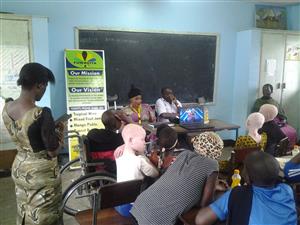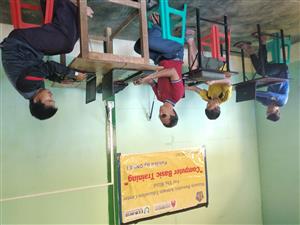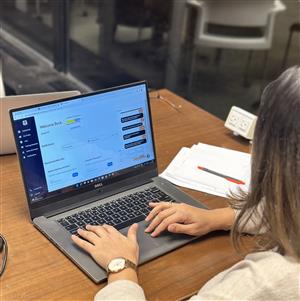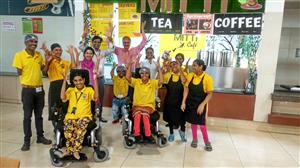Search Results
Search
Filter results
Advanced Filters
Your search returned 288 Solutions
-
Access to inclusive education for the equitable employment of
youth with visual impairments
Kilimanjaro Blind Trust Africa (KBTA): Provides assistive devices and digital curriculum content for users of digital Braille. Between 2018 and 2023, equipped 3,000 learners in six countries with assistive technologies.
From inclusive education to employment for children and youth with visual impairments in Africa, Kenya -
A work coach model for persons with intellectual disabilities
The Sana employment project consists of four phases: assessment, job matching, evaluation, and training by work coaches. The project started in 2015 with one hotel in Amman. As of mid-2020 the programme has completed training of 150 participants, of whom 80 have received employment.
Sana for Special Individuals, Sana Work Program, Jordan -
A scalable assistive technology initiative
The F123 Initiative leverages investments made by thousands of individuals, companies, and governments in free and open-source technologies to make internships, and consequently employment opportunities, that are available in small companies accessible to persons with disabilities.
UNICEF New York, A scalable assistive technology initiative, Brazil -

Entrepreneurship training programme for women with disabilities
FUWAVITA was founded in 2018 by Aneth Geranda Isaya, the first deaf person to graduate from university in Tanzania. Aneth teaches women with disabilities to produce handicrafts and food that they can sell. By 2020, 500 women had successfully completed the economic generation training.
FUWAVITA - Tanzania Joy Women Entrepreneurship for the Deaf, FUWAVITA, Tanzania -

Building a tech infrastructure, training, and IT job creation for persons with visual impairments
Living Dignity for the Blind, Myanmar: Offers decentralized training for visually impaired individuals in remote areas. The program has expanded to several regions, with trained individuals finding tech-related jobs.
Promoting technology and capacity-building towards employment, Myanmar -

An online accessible skills-driven job platform
Jobs Ability’, launched in 2018, is a development of the US non-profit Our Ability, in cooperation with Syracuse University and Microsoft. The Artificial Intelligence-driven job matching service uses algorithms that focus on the skills and abilities of persons with disabilities, rather than on what they do not have.
Our Ability - Access to Opportunity, Jobs Ability, United States of America -
Helping disabled employees understand their rights
From 2008 to June 2012, People First NZ ran an employment advocacy service, Works4Us, to assist disabled workers to understand their employment rights and in issues of employment. As part of this service Work4Us developed an Easy Read Individual Employment Agreement to assist workers with learning disabilities.
People First New Zealand Inc., Helping disabled employees understand their rights, New Zealand -
Youth transition programme
The Youth Transition Program (YTP) is a collaborative school-to-work transition programme that serves young adults with disabilities statewide in Oregon, USA. The purpose of YTP is to prepare young adults for employment or career-related post-secondary education. YTP is jointly funded by local schools and Oregon Vocational Rehabilitation.
University of Oregon, Youth transition programme, United States of America -
Returning successfully to work
Responding to a rise in work-related injuries, SOCSO introduced the Return to Work Programme. Making use of individual but systematic case management while promoting early intervention, the programme considerably improved return to work rates. The benefits outweigh by far the costs by a 1.43:1 ratio.
SOCSO Tun Razak Rehabilitation Centre, Returning successfully to work, Malaysia -

Fast-growing café chain with a majority of employees with disabilities
Since 2017, Mitti Café has been providing hospitality training and employment opportunities in accessible cafés established on the premises of educational institutions or private-sector companies. As of 2020 there are 12 Mitti Cafés, which are managed and staffed entirely by adults with disabilities.
Mitti Cafe, MITTI Café, India